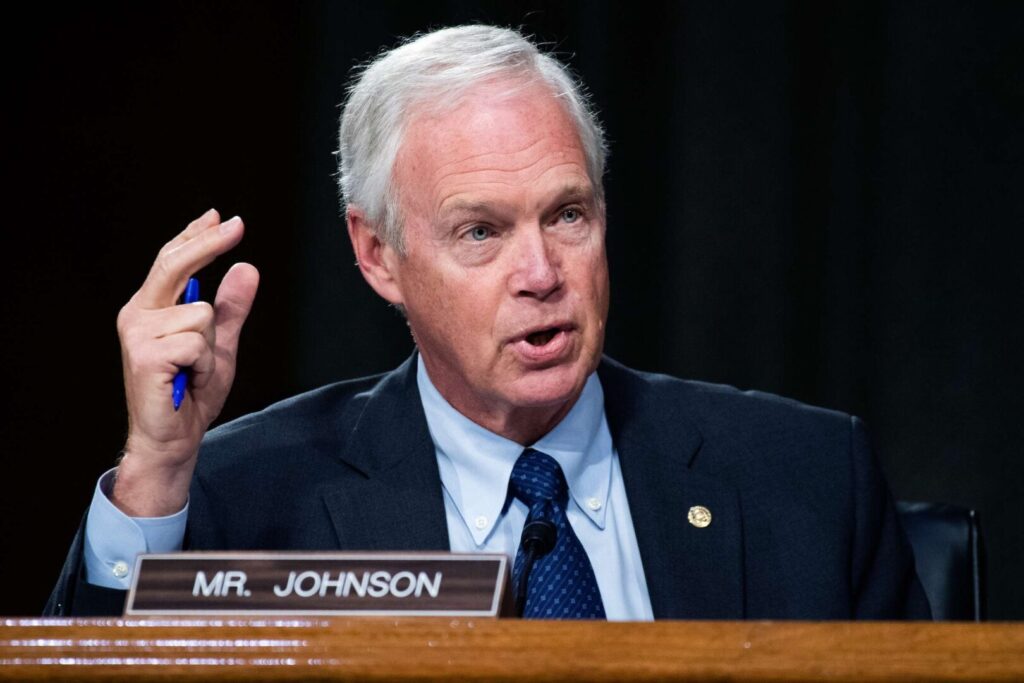President Donald Trump on Friday fired the head of the Bureau of Labor Statistics just hours after the release of a weaker-than-expected jobs report, marking another unprecedented intervention in federal economic data.
Trump announced the dismissal of BLS Commissioner Erika McEntarfer on his Truth Social platform, accusing her, without evidence, of manipulating the data to hurt his administration.
“We need accurate Jobs Numbers [sic],” Trump wrote. “She will be replaced with someone much more competent and qualified. Important numbers like this must be fair and accurate-they can’t be manipulated for political purposes.”
The Labor Department earlier in the day reported that the U.S. economy added just 73,000 jobs in July, far short of economists’ expectations. In addition, the department revised May and June job gains downward by a combined 207,000 positions.
In a second post, Trump escalated his claims, writing: “In my opinion, today’s Jobs Numbers were RIGGED in order to make the Republicans, and ME, look bad.”
An administration official confirmed McEntarfer’s termination to NBC News.
McEntarfer, a longtime federal economist who held roles at the Census Bureau, Treasury Department, and Council of Economic Advisers, was nominated by President Joe Biden in July 2023 and confirmed by the Senate in January in an 86-8 vote. Vice President JD Vance was among the Republicans who voted to confirm her.
On Friday night, McEntarfer responded in a post on X, formerly Twitter: “It was the honor of my life to lead the Bureau of Labor Statistics. The work of its staff is vital to understanding the American economy.”
Deputy Commissioner Bill Wiatrowski will serve as acting commissioner during the search for a permanent replacement, Labor Secretary Lori Chavez-DeRemer said in a statement.
The abrupt firing sent shockwaves through Washington, where concern has been growing over Trump’s removal of nonpartisan civil servants during his second term.
“President Trump is once again destroying the credibility of our government by firing expert and nonpartisan officials because he does not like the facts that they present,” said Max Stier, CEO of the nonpartisan Partnership for Public Service. “Governments that go down this path find themselves in ugly territory very quickly.”
Julie Su, who served as labor secretary under Biden, defended the integrity of the BLS, saying, “The work is done largely by expert career staff who do their jobs with care and pride; career staff who have also been attacked and vilified by this president.”
Trump’s criticism of the BLS comes in stark contrast to his praise of the agency earlier this year when reports were more favorable. In May, the White House touted April’s job numbers as evidence that the economy was “revitalizing” under Trump. In June, Trump posted “GREAT JOBS NUMBERS” on Truth Social.
Former Labor Department Chief of Staff Daniel Koh dismissed Trump’s latest claims, writing on X: “Nobody is faking numbers. Revisions happen all the time.”
Julie Hatch Maxfield, who oversees the BLS division responsible for compiling the jobs report, remains in her position. She joined the agency during Trump’s first term.
Critics have warned that undermining the credibility of U.S. economic data could have long-lasting consequences. “Our jobs numbers must be fair, accurate, and never manipulated for political purposes,” said Chavez-DeRemer. “We owe that to businesses, workers, and policymakers alike.”
The BLS, long considered a gold standard for economic data collection, relies on complex survey methodologies and frequently revises data as new responses come in. Experts note that such revisions are routine and reflect statistical adjustments — not political tampering.
The jobs report controversy follows Trump’s renewed attacks on Federal Reserve Chair Jerome Powell, whom he suggested should be “put out to pasture” after Powell cautioned against prematurely cutting interest rates.
“If you move too soon, you wind up maybe not getting inflation all the way fixed and you have to come back,” Powell said during a Wednesday event. “That’s inefficient. If you move too late, you might do unnecessary damage to the labor market.”
Trump, who was elected to a second term in a landslide last November, has made reshaping the federal workforce a central focus of his administration. The dismissal of McEntarfer adds to a growing list of high-profile firings, raising alarms among watchdog groups and economists about the politicization of U.S. government data.



